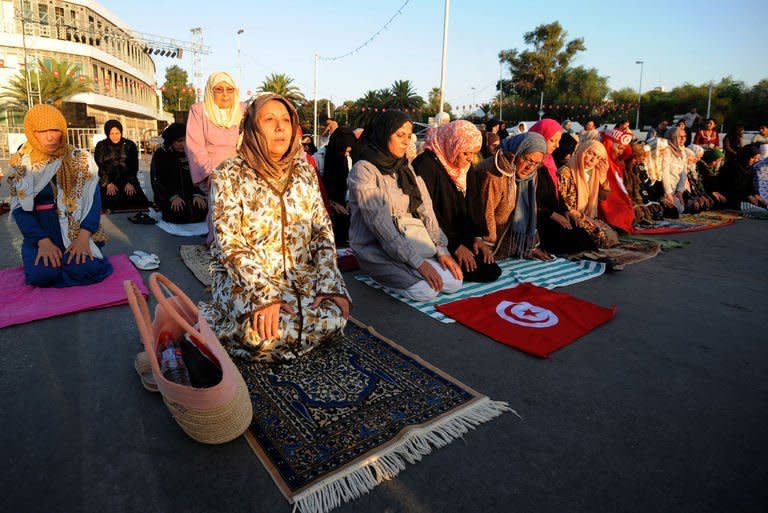Tunisia Islamist leader to meet union chief on crisis
The head of Tunisia's ruling Islamist party Ennahda is to meet the powerful UGTT trade union chief on Monday on the crisis sparked by the killing of an opposition politician. The UGTT said that its head, Houcine Abassi, would meet Ennahda leader Rached Ghannouchi and Mustapha Ben Jaafar, speaker of the National Constituent Assembly. Nearly 500,000 Tunisians are members of the UGTT, and the union can paralyse the country with strike action. The planned meeting comes after Ben Jaafar announced the suspension of the assembly's work drawing up a new constitution while the Islamist-led government and the opposition hold talks on ending the political crisis. Ben Jaafar has proposed the UGTT as mediator for the talks. The union has called for the resignation of the Islamist-dominated cabinet and its replacement by a government of technocrats. Ennahda has rejected the proposal so far. Ghannouchi said on Facebook on Saturday that he had met the head of employers' organisation Utica, Wided Bouchamaoui. Utica too has called for the formation of a cabinet of technocrats. Meanwhile Tunisia's Tamarod, a movement that has modelled itself on the one in Egypt that led to the army ousting the elected Islamist president, said five of its activists were on hunger strike in front of the constituent assembly to demand its dissolution and the resignation of the government. Tamarod Tunisia says on its Facebook page that it has collected 1.6 million signatures in support of both measures. The figure, which has not been verified, would amount to some 15 percent of the country's population. Tunisia's opposition coalition, made up of parties from across the political spectrum, has refused to meet Ennahda until a new government is formed. Hundreds of opposition supporters have kept up protests every night in front of the assembly but on August 6, tens of thousands took part in demonstrations. The opposition is hoping to raise the pressure on the government with a new demonstration on August 13 to mark the anniversary of the promulgation of the Personal Status Code in 1956 under Tunisia's first president, Habib Bourguiba. The code gave Tunisians unequalled rights in the Arab world at the time, and the country's ruling Islamists have regularly been accused of trying to roll them back. Ennahda's critics have blamed the Islamists for the rise of the ultra-conservative Salafist movement in the country since January 2011, whose violent actions are a threat to stability in the country. Radical Salafists were blamed for the assassination of opposition MP Mohamed Brahmi at the end of July, the second opposition politician to be killed this year.




